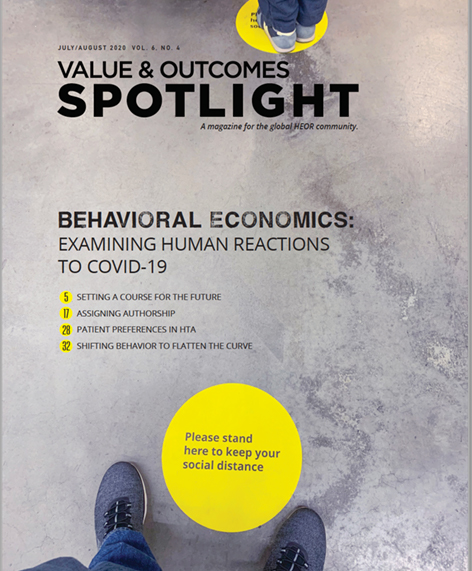Hot Topics From Around the World
1. COVID-19 and Remdesivir: Rethinking How We Measure a Drug’s “Value” (STATnews)
2. Global Regulators Discuss Data Requirements for Phase III Trials of COVID-19 Vaccines (Pharma Focus Asia)
Many researchers around the world are currently working on vaccines against COVID-19 but a rapid authorization of COVID-19 vaccines will only be possible if robust and sound scientific evidence on vaccine candidates’ quality, safety, and efficacy is generated. International convergence of data requirements is intended to encourage and accelerate the development of vaccines as a global public health good.
3. New Journal Will Vet COVID-19 Preprints, Calling Out Misinformation and Highlighting Credible Research (STAT)
MIT Press in June announced the launch of an open access journal, Rapid Reviews: COVID-19, that will publish reviews of preprints related to COVID-19, in an effort to quickly and authoritatively call out misinformation as well as highlight important, credible research. The journal will use an artificial intelligence system developed at Lawrence Berkeley National Laboratory to categorize new preprints by discipline (such as epidemiology or clinical care) and degree of novelty.
4. Alternative Policies for Pricing Novel Vaccines and Drug Therapies for COVID-19 (ICER)
In a white paper, ICER’s Sarah K. Emond, MPP, and Steven D. Pearson, MD, MSc, examine the issues of pricing for COVID-19 vaccines and therapies. According to the authors, the paper is intended as a short introductory overview to inform public and policymaker discussions regarding the best way to harness public and private efforts to achieve rapid, equitable, and affordable treatment for COVID-19 in the United States.
5. Insurance Denials of Care Amount to Unlicensed Medical Practice (Journal of Managed Care & Specialty Pharmacy)
In an editorial in the July 1 Journal of Managed Care & Specialty Pharmacy, William E. Bennett, MD, MS, expresses his frustration with insurance denials of care. This practice, he argues, “is directly harmful to patients and the healthcare system because it (a) amounts to an unqualified entity practicing medicine with limited information about the patient, (b) does not actually contain costs, and (c) is not an effective method to improve care quality…when the payer is in the position to make these decisions, often unilaterally, their inherent bias to lower cost will always dominate. So, to pretend that this is being done for the benefit of patients clearly rings false.”
6. Economists and Epidemiologists Not at Odds but in Agreement: We Need a Broad-Based COVID-19 Testing Survey (Johns Hopkins Coronavirus Resource Center)
Economists and epidemiologists at Johns Hopkins say in an op-ed that tackling the COVID-19 pandemic in the United States will require thoughtful collaboration, not conflict, between public health and economics professionals. “In short, epidemiologists and economists, jointly pursuing the well-being of the US populace, must rapidly learn to join hands in providing appropriate guidance to our nation’s leaders as to how to weather the current pandemic,” the authors say. “What they both desperately need is data that can help them sort out the next rounds of policy in this terribly difficult time.”
7. Comparison of Health Technology Assessments and Time to Reimbursement for Orphan Drugs (European Pharmaceutical Review)
This article delves into 4 health technology assessment agencies, reviewing a study that analyzes the opportunities and challenges for orphan drugs in France, Germany, England, and Scotland. The authors found that despite several regulations and concessions to support better outcomes for drugs, reimbursement assessments are inconsistent across the EU markets included in this study. As a result, manufacturers continue to face access challenges.
8. Competitive Orphan Drug Market Will Drive Down Prices, OptumRx Predicts (FiercePharma)
Developers of orphan drugs will no longer enjoy free rein when it comes to pricing, OptumRx says, for the simple reason that many of the near-term product releases will be entering crowded markets.
9. ICER Reschedules Cystic Fibrosis Public Meeting for August 27, 2020 (ICER)
ICER moved its public meeting to discuss the comparative clinical effectiveness and value of treatments for cystic fibrosis to August 27, 2020. The public meeting, previously postponed due to the COVID-19 pandemic, will be held virtually. The Evidence Report will be subject to deliberation during this public meeting of the California Technology Assessment Forum, one of ICER’s 3 independent evidence appraisal committees.
10. Financing Drug Innovation in the United States: Current Framework and Emerging Challenges (Pharmacoeconomics)
This paper reviews the main elements of the current US system for financing drug innovation and its approach to balancing multiple objectives. Continued experimentation and the input of a range of stakeholders are needed to ensure next-generation therapeutic advances continue to be developed and made available to patients.
11. The Things You Need to Know About the Digital Transformation of Primary Research (PRMA Consulting)
Sophie Clayton-Welch, Head of the International Experts Group at PRMA Consulting, discusses 3 ways that new technology is helping market access professionals gain cost-effective, real-time payer insight: quality, speed, and compliance.
12. Clinical and Economic Outcomes Evaluated in Lyme Disease: A Systematic Review (Parasites & Vectors)
The financial implications of Lyme disease can vary widely for both the health system and the individual patients experiencing the disease. The aim of this review was to summarize published data on clinical and economic outcomes associated with Lyme disease. The most frequent costs identified focused on formal health costs, and productivity losses were the most common costs identified outside of the health system.
Explore Related HEOR by Topic

